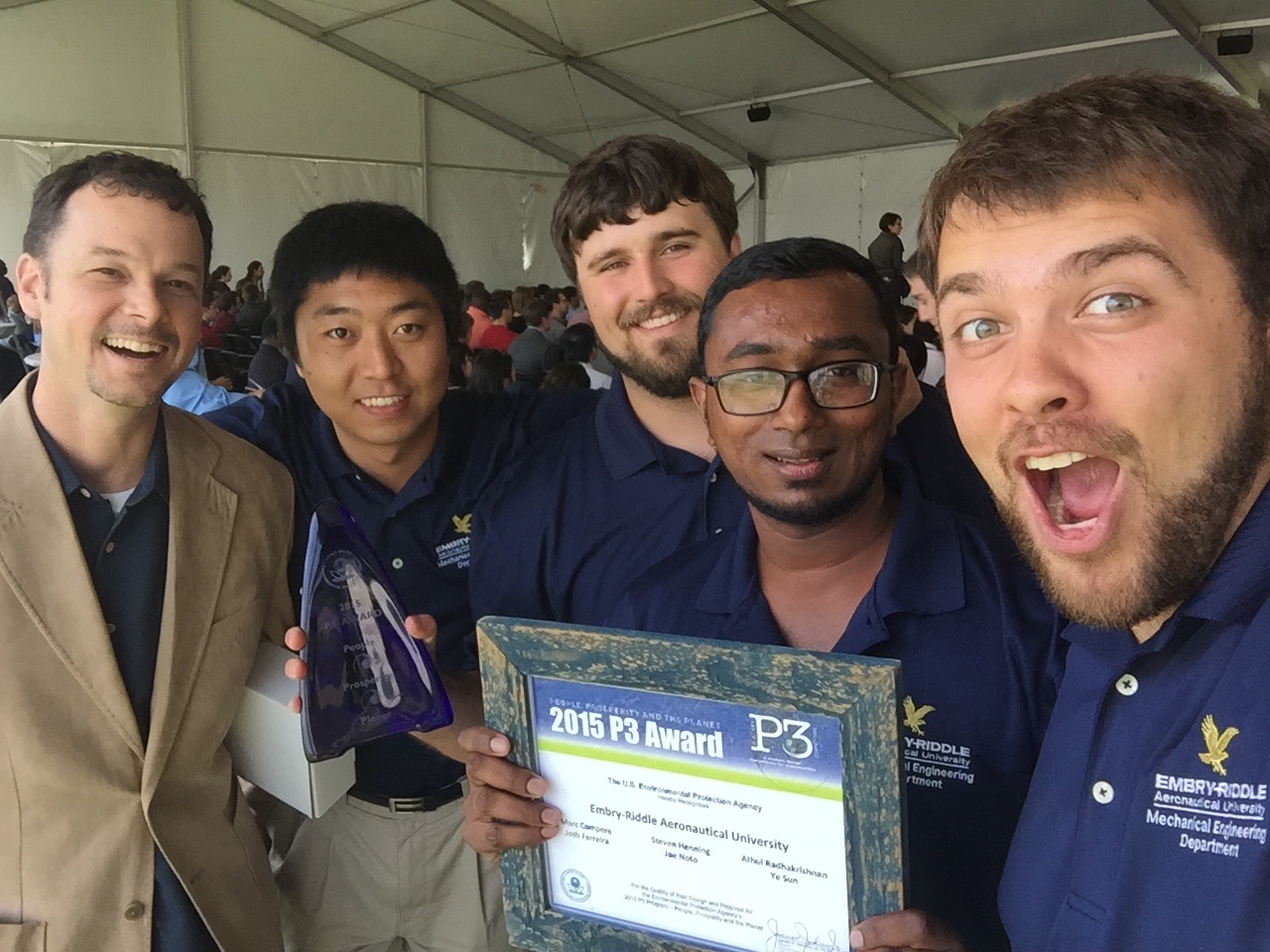Embry-Riddle students are diving deep into diesel emission technology and earning accolades for it. In April, a multidisciplinary team of four engineering students enrolled in the Clean Energy Systems track at the Daytona Beach Campus received a $75,000 grant from the Environmental Protection Agency to bring its diesel emissions test stand to a level of real-world application.
Marc Compere, associate professor of mechanical engineering, says the test stand will help automobile manufacturers test real-world emissions from hybrid diesel-electric engines, which he believes will be necessary to meet strict fuel economy standards in the near future. Emissions are a challenge for diesel hybrids, which require selective catalyst reduction (SCR) systems to meet their targets.
“SCR is a mature technology for heavy-duty vehicles, but a car has a much higher transient drive cycle, more starts and stops. Cold stops and starts are the worst for emissions, and SCR is not currently designed for those,” Compere says. “We’re partnering with the engineering physics department to apply advanced, non-linear control techniques to improve SCR performance.”
The team won phase one of the EPA’s People, Prosperity and the Planet (P3) competition in 2014 with its test stand design, earning a $15,000 award. The team used those funds to improve the design for this year’s follow up competition.
Students Joe Noto and Josh Ferreira and graduate students Ye Sun (‘12, DB) and Athul Radhakrishnan (‘14, DB) attended the P3 contest this year for phase two.
EcoCAR 3
Another clean energy student project at the Daytona Beach Campus, the EcoEagles is one of 16 university teams across North America participating in EcoCAR 3, the latest Department of Energy Advanced Vehicle Technology Competition.
“EcoCAR 3 provides students with a unique opportunity to gain hands-on experience. The team runs like a company: The students get a taste of the real world while handling the types of projects that they will see much later in their careers,” says Patrick Currier, assistant professor of mechanical engineering and the team’s lead faculty adviser.
The EcoEagles have competed in similar contests since 2008. Later this year, the team will receive a stock 2016 Chevrolet Camaro donated by General Motors for the competition. Their task: to redesign the car into a hybrid-electric vehicle that will reduce environmental impact, while maintaining its expected muscle car look and performance.
With only four years (2014-2018) to accomplish this goal, the team is revving up. It recently selected the design architecture for the car. It will use one gas-powered, four-cylinder engine and two electric motors, says Calvin Baker, a current Embry-Riddle student and EcoCAR 3 communications manager. Selectively operating each power plant allows for different driving modes. “Economy mode will be a singular electric motor, resulting in around 120 horsepower and electricity consumption equivalent to 53 miles per gallon of gasoline,” Baker says. “Performance mode will use both electric motors and the four-cylinder engine sending power to the rear wheels, resulting in a 0-60 time of 4.9 seconds.”
The team has 50 students with majors ranging from business to communication, to all of the engineering degrees Embry-Riddle offers. For more: EcoEagles.org.
